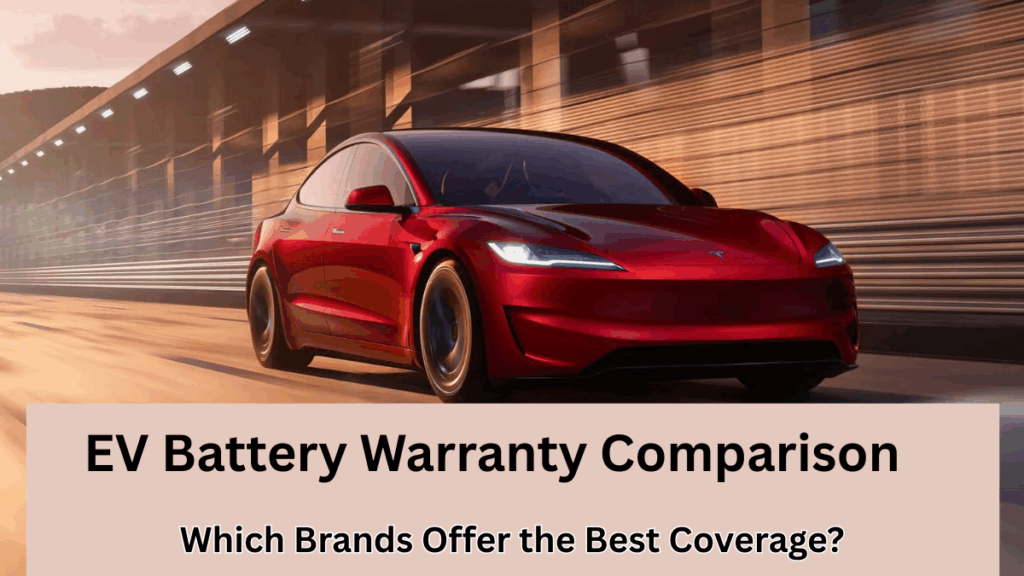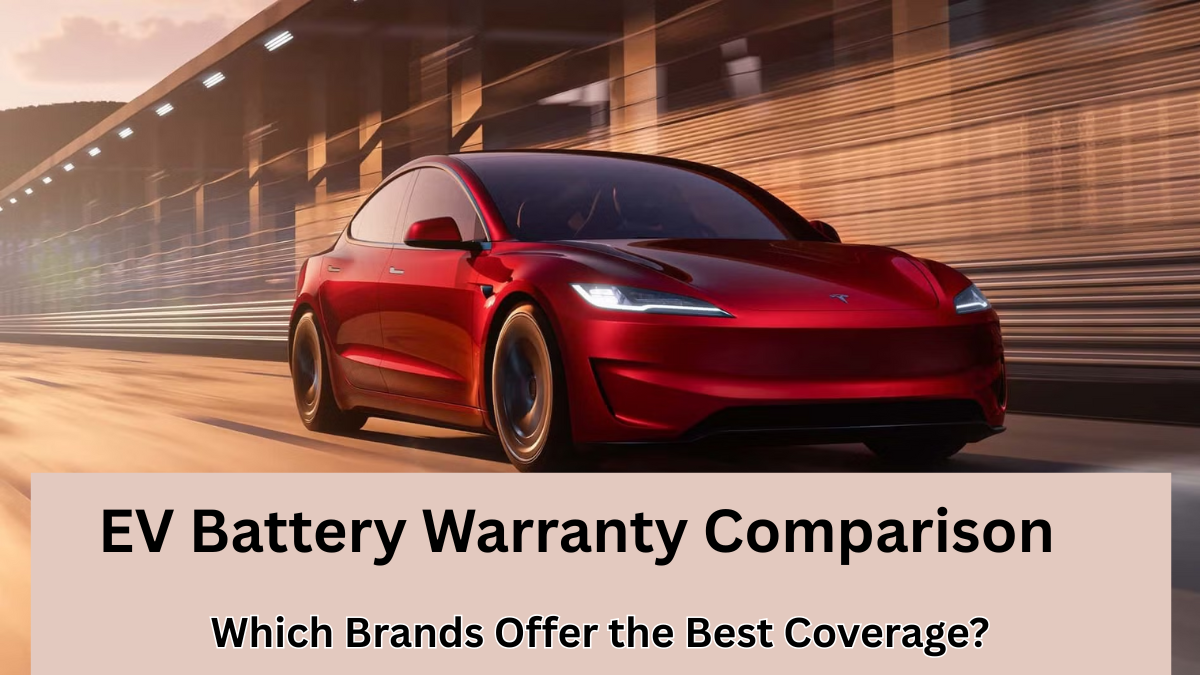As electric vehicles become the new normal, one of the most critical aspects buyers look at is EV battery warranty coverage. After all, the battery is the beating heart of an EV — and replacing it doesn’t come cheap.
In 2025, most top automakers have refined their battery warranty terms, making it easier for consumers to compare and decide which EV offers peace of mind after the purchase. Let’s take a closer look at who’s offering what.

Why Battery Warranty Matters in 2025?
When choosing an EV, you’re not just buying a car—you’re investing in long-term performance. Battery warranties provide reassurance that your vehicle will stay reliable over time without surprise costs.
A good EV battery warranty should:
-
Cover a high mileage or a long duration (ideally both)
-
Include capacity retention guarantees
-
Be transferable to the next owner
-
Specify clear coverage terms
Top EV Battery Warranty Comparison 2025
Here’s a side-by-side comparison of major EV brands and what they offer in terms of battery warranty in 2025:
| Brand | Years of Warranty | Mileage Limit | Battery Retention Guarantee | Notes |
|---|---|---|---|---|
| Tesla | 8 years | 100,000–150,000 mi | 70% capacity | Varies by model (Model S/X: 150k mi) |
| Hyundai | 10 years | 100,000 mi | 70% capacity | One of the longest warranties offered |
| Kia | 10 years | 100,000 mi | 70% capacity | Mirrors Hyundai’s coverage |
| Ford | 8 years | 100,000 mi | Not always specified | Limited capacity guarantee details |
| BMW | 8 years | 100,000 mi | 70% capacity | Industry standard, luxury segment |
| Nissan | 8 years | 100,000 mi | 70% capacity | Applies to LEAF and Ariya |
| Volkswagen | 8 years | 100,000 mi | 70% capacity | Consistent with global policy |
| Chevrolet | 8 years | 100,000 mi | 70% capacity | Used in Bolt and new EV lineup |
Brands Leading the Pack in 2025
Tesla
Tesla maintains its reputation for innovation but sticks to the industry average for EV battery warranty 2025—offering between 100,000 and 150,000 miles depending on the model. While comprehensive, coverage terms may not be as generous as Hyundai’s in terms of duration.
Hyundai
Hyundai has become a standout leader in this space. With a 10-year or 100,000-mile battery warranty, it offers one of the most reassuring packages in the market. Hyundai also offers coverage even on used EVs in certain markets.
How to Read Between the Lines of EV Warranty Fine Print
When comparing EV battery warranties in 2025, it’s not just about years and miles. Look for these:
-
Battery degradation clause: Does the warranty guarantee a minimum battery capacity (usually 70%)?
-
Transferability: Can a second owner benefit from the same warranty?
-
Exclusions: Are high-speed charging or cold-weather impacts covered?
-
Service terms: Do you need to service at a certified dealership?
Tips Before You Decide
Before signing that EV contract:
-
Compare the battery coverage terms of Tesla, Hyundai, and others
-
Check for real-world customer reviews on how battery claims are handled
-
Ask the dealer to explain what’s not covered
-
Don’t forget to ask about software updates or battery swaps
FAQs
Q1. What is the industry standard for EV battery warranties in 2025?
Most automakers offer 8 years or 100,000 miles, with some like Hyundai extending it to 10 years.
Q2. Does Tesla offer the longest EV battery warranty in 2025?
No, while Tesla offers up to 150,000 miles on some models, Hyundai and Kia lead in terms of overall duration and clarity in their coverage terms.
Q3. What happens if an EV battery loses more than 30% capacity?
If the warranty includes a 70% capacity retention guarantee, the manufacturer may replace or repair the battery at no cost during the warranty period.
Q4. Are these warranties transferable if I sell my EV?
Yes, most EV battery warranties 2025 are transferable, but check the fine print—Tesla and Hyundai include this in their terms, but the process may differ.
Final Thoughts
If you’re looking to future-proof your EV investment, Tesla and Hyundai offer strong contenders with their 2025 battery warranty terms. Just be sure to understand what’s really covered, and don’t hesitate to ask the hard questions at the dealership.
Click here to learn more
